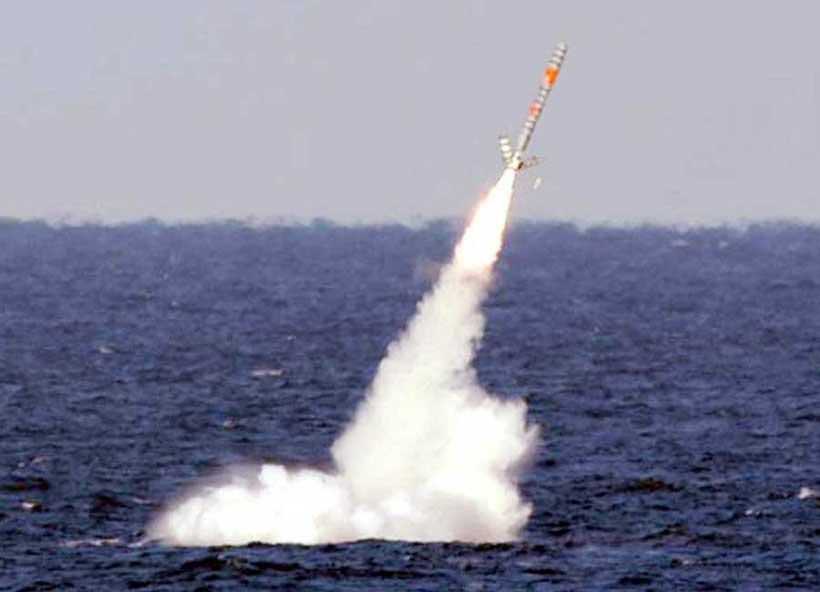By
Alicia Sanders-Zakre
Africa-Press – Eritrea. The recent Israeli and United States attacks on Iran and the clashes between nuclear-armed India and Pakistan before that have brought the danger posed by nuclear weapons into stark focus. The fact that Israel is a nuclear-armed state, never joined the Nuclear Non-Proliferation Treaty, and acted without clear evidence that Iran is seeking a bomb, underlines the hallenges in preventing both the use and further proliferation of nuclear weapons.
This knotted issue is not being helped by European leaders, who have long claimed to be responsible members of international community, openly discussing increasing the role of nuclear weapons in European defence strategy and the British decision to re-equip its airforce with nuclear weapons for the first time since 1998.
President Macron has offered French nuclear weapons to be used to defence other countries. Some leaders have floated the idea more European countries or even the European Union itself breach their commitments under the NPT and acquire their own weapons.
So far the public in Europe, Israel or anywhere else have never been asked for their approval of their governments’ nuclear weapons policies which are shrouded in secrecy. History suggests it is very unlikely they will be, even when it is them footing the bill through their taxes.
Ever since nuclear weapons have existed, the select few in charge of nuclear arsenals have concealed key information. They have kept information secret from their citizens, from legislators and even members of the government. This nuclear secrecy has had devastating consequences, from citizens bombed by their own government in nuclear test explosions that have left many still suffering from radioactive contamination, to the enormous diversion of national resources, and finally to the erosion of democratic principles and practice.
I co-author an annual report seeking to pull back the curtain on one aspect of nuclear secrecy – how much nuclear weapons cost. By chance, this year’s edition was launched on the day Israel started its attack on Iran. Collecting this information is no easy task given how opaque governments are about their nuclear arsenals, but with some detective work best estimates can be made.
This year for the first time, we decided to investigate costs of so-called “nuclear sharing” practices, whereby the United States and Russia station their nuclear weapons in other countries and agree that they may be used on another country’s behalf.
The practice of nuclear sharing has been in the spotlight in recent weeks with the British decision to buy nuclear capable F35A aircraft from the US to join NATO’s “nuclear mission” and drop American nuclear bombs. The UK is not alone as European heads of state from Poland to Lithuania have openly discussed welcoming U.S. nuclear weapons onto their territory and President Macron’s offer of his country’s nuclear-armed Rafales in a similar arrangement.
Russia has publicly claimed that its nuclear weapons are stationed in Belarus. Belgium, Germany, Italy, the Netherlands and Türkiye, which are assessed by experts and leaked documents to host US nuclear weapons, still refuse to admit to their citizens that nuclear weapons are in their countries and the British, coyly, did not mention weapons in their official press release about the F35A purchase.
Try as they might, citizens and legislators cannot get answers as to exactly how much of the taxes they pay, or the national budget they oversee, is spent on hosting these weapons and, in most cases, training their own air forces to use them. There is an agreement between the U. S. and the host nation – the Atomic Stockpile Agreement – which stipulates the cost sharing between both countries in relation to nuclear stationing, but that document is kept secret.
Our research did reveal some hidden costs related to nuclear sharing that are covered by nuclear host countries. A 2023 U.S. Defence Department budget document specified that NATO funded a $384 million project to upgrade “security measures, communications and facilities” at bases in Belgium, Germany, Italy, the Netherlands and Türkiye. Host countries are also responsible for providing personnel to guard stored nuclear warheads, according to a declassified 2016 U.S. Defence Department document.
Some other related costs are in the public eye, and have been subject to public criticism. The numbers from recent polling in Europe show that people are not happy that decisions to host U.S. nuclear weapons have been made for them. NATO nuclear host countries are forced to pay for the aircraft that would be used to drop nuclear weapons in multi-billion dollar contracts to Lockheed Martin, the U.S. company that builds them, as Washington won’t certify others to drop the bomb. The NATO Military Budget, to which all NATO members contribute, funds collective training and exercises, including presumably the annual Steadfast Noon exercise to practice using the nuclear weapons stationed in Europe that, given the range of the aircraft, would be dropped on Europeans.
But the total cost of the bill remains unknown.
If these governments respected the liberal democratic traditions they claim to champion, they would bring their citizens into their confidence and involve them in decisions on matters of profound public interest like these.
As the experience of the people exposed to fallout from U.S. nuclear test explosions shows, keeping people in the dark causes irreparable harm and leads to poor decision making. The very first nuclear bomb explosion, the Trinity test that took place 80 years ago this July, set the pattern when the leaders of the Manhattan Project rejected their own medical experts’ advice to warn people living and holidaying nearby.
This approach to secrecy remains a recipe for disaster particularly when dealing with nuclear weapons where there is no margin for error.
It is high time these governments honoured their commitment to democratic traditions such as access to information on matters of vital public interest and stopped avoiding public scrutiny of their nuclear weapons policies with self-serving security arguments.
Source: moderndiplomacy
For More News And Analysis About Eritrea Follow Africa-Press







